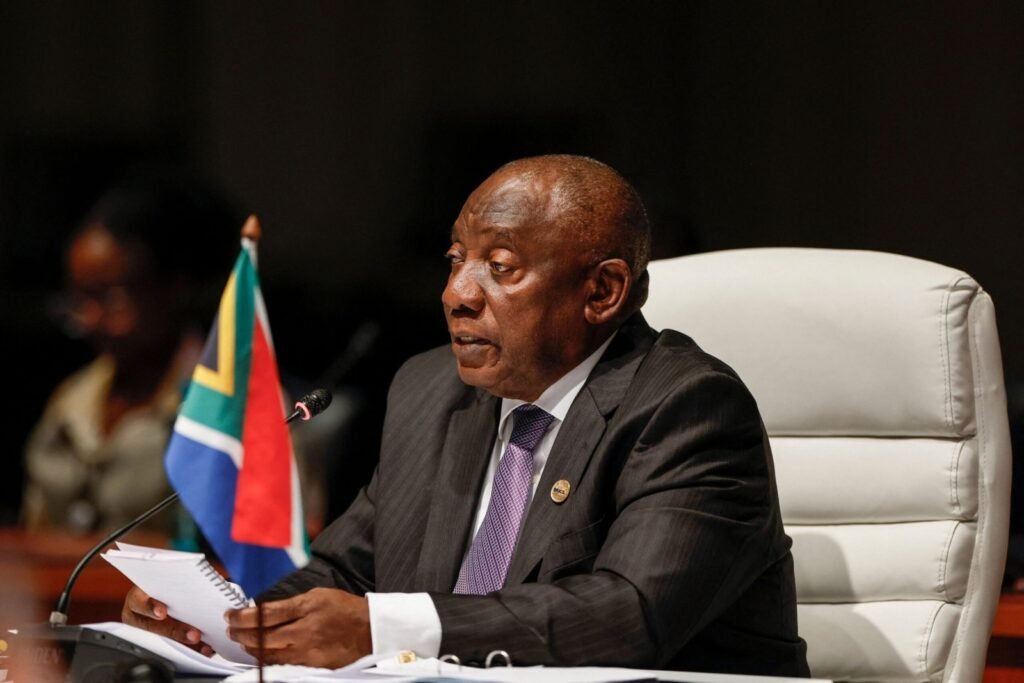
In a bold bid to shore up its strained finances, South Africa, Africa’s economic titan with a $400 billion GDP, is sharpening its focus on the country’s wealthiest citizens, according to sources cited by Bloomberg and Nairametrics. The South African Revenue Service (SARS) is poised to overhaul its High Wealth Individual (HWI) tax unit, which currently tracks individuals with assets of at least 75 million rand ($4.3 million), by potentially lowering the threshold to ensnare a larger share of the nation’s estimated 37,400 dollar millionaires. The move, aimed at plugging a chronic fiscal deficit, could redefine how Africa’s richest nation tackles wealth inequality while risking a backlash from its economic elite. Since its launch in 2021, the HWI unit has doubled its reach to 4,084 taxpayers, raking in 8.7 billion rand in revenue for the 2023/24 fiscal year. Yet, a 2025 Henley & Partners and New World Wealth report paints a far richer picture: South Africa boasts over 37,400 individuals with liquid wealth of $1 million or more, and Knight Frank estimates 5,000 residents hold net worths exceeding $10 million.
Even more alarming, SARS Commissioner Edward Kieswetter recently revealed that roughly 100,000 individuals earning over 1 million rand annually remain unregistered for tax, potentially depriving the state of up to 800 billion rand. These “ghost millionaires,” often tied to murky sectors like nightclubs or offshore property deals, are now squarely in SARS’ crosshairs.“We’re reevaluating the 75 million rand threshold to align with global standards for high-net-worth individuals,” said Natasha Singh, director of the HWI unit, hinting at a broader net that could include personalized compliance services like dedicated relationship managers.
The National Treasury has already mandated that provisional taxpayers with assets above 50 million rand declare their wealth at market value in 2023 returns, a move designed to map the country’s hidden fortunes. With 7.5 billion rand allocated to modernize SARS’ systems, the agency is gearing up for a sophisticated hunt. The stakes couldn’t be higher. South Africa, grappling with a budget deficit unchanged since the 2008 financial crisis, faces mounting pressure to fund public sector wages, social grants, and infrastructure projects like the commuter rail system. Coalition disputes forced Finance Minister Enoch Godongwana to revise the 2025 budget three times, scrapping a politically toxic VAT hike.
Targeting the ultra-rich offers a lifeline—but it’s a high-wire act. South Africa, with a Gini coefficient of 0.67, is the continent’s most unequal society. Losing just 10% of its top taxpayers could cost 49 billion rand annually, according to parliamentary estimates. In 2024 alone, 38,000 wealthy individuals ended their tax residency, draining $160 million from state coffers. The broader African context underscores the urgency. Oxfam reports that nearly 90% of African nations have rolled back progressive tax policies since 2022, deepening a wealth gap where the richest 0.02%—dollar millionaires—control nearly 20% of the continent’s wealth, while the poorest half clings to less than 1%.
A proposed 1% wealth tax across Africa could generate $66 billion annually, but political resistance and the ease of capital flight pose formidable barriers. South Africa’s tax hunters are betting on precision and persistence to unlock billions from its elusive millionaires. Yet, as they tighten the net, they risk spooking the very wealth they seek to harness. In a nation—and continent—where inequality festers, this high-stakes gamble could either fuel a fairer future or accelerate the exodus of its richest residents. The world is watching.